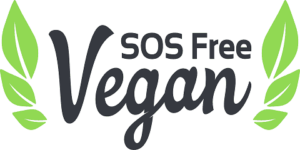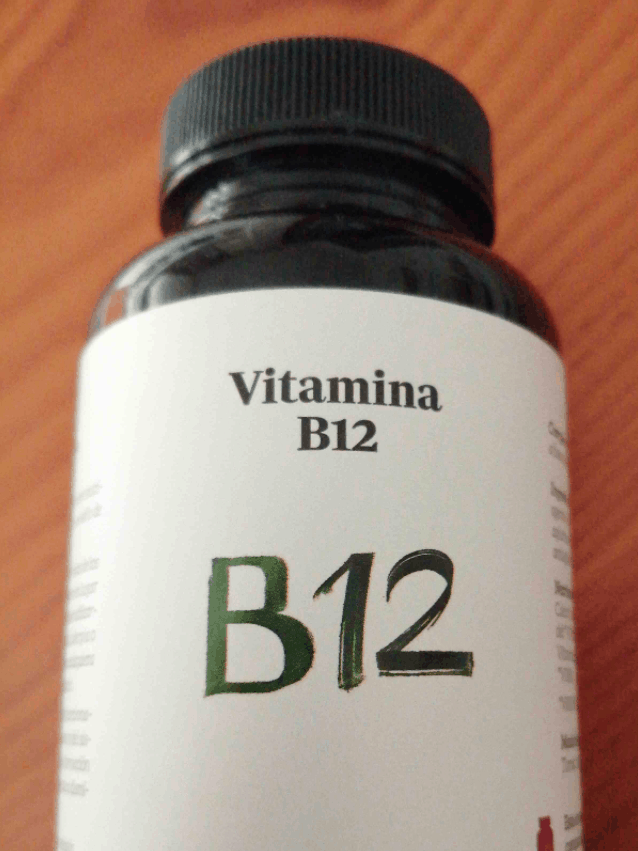Last Updated on April 23, 2023 by admin
The vegan diet may be a soundly healthy one, but deficiencies can develop in some areas, especially vitamin B12. Since you get this vitamin through milk and milk products, eggs, poultry, meat, and fish but not plant foods, you’ll need to take a supplement. How much vitamin B12 does a vegan need?
A vegan should take 2.4 micrograms of vitamin B12 a day to ensure they get their recommended dosage of this vitamin. Through vitamin B12, you may have fewer depression symptoms and a lower chance of developing macular degeneration and heart disease.
Keep reading to learn more about vitamin B12, including why it’s so important to good health and how to incorporate more of this vitamin into your vegan lifestyle. If you’re new to veganism especially, you’re not going to want to miss this article!
What Is Vitamin B12?
First thing’s first, what is vitamin B12? Also known as cobalamin, vitamin B12 is a nutrient that produces DNA (in part) and promotes blood and nerve cell health. Without enough vitamin B12 in your diet, you could develop megaloblastic anemia, which occurs when your red blood cells increase in size. Like other types of anemia, megaloblastic anemia can cause weakness and fatigue.
If you’re on a non-vegan and non-vegetarian diet, you shouldn’t have to worry about getting enough sources of vitamin B12. Foods such as certain fortified breakfast cereals, eggs, cheese, milk, fish, and meat all contain this vitamin. Some foods are higher in vitamin B12 than others, such as:
- Yogurt
- Fortified nondairy milk
- Salmon
- Trout
- Fortified nutritional yeast
- Tuna
- Beef
- Sardines
- Clams
- Animal kidneys and livers
When eating a food that contains vitamin B12, your stomach’s hydrochloric acid will segment the protein and the vitamin itself. Then the vitamin B12 attaches to a stomach protein where it’s later absorbed.
How Much Vitamin B12 Does a Vegan Need?
Assuming you’re a healthy adult vegan, you need at least 2.4 micrograms of vitamin B12 every day. For those with a deficiency, more of the vitamin may be allowed, but we’d recommend contacting your doctor or nutritionist before crossing that threshold.
There are some other instances in which upping your quantity of vitamin B12 is allowed and even recommended. If you’re pregnant, you want to ingest 2.6 micrograms of the vitamin a day. After you have the baby and while breastfeeding, increase your intake even more to 2.8 micrograms.
For all other ages, here is the recommended amount of vitamin B12 you should consume every day:
- Birth to 6 months old: 0.4 micrograms
- 7 to 12 months old: 0.5 micrograms
- 1 to 3 years old: 0.9 micrograms
- 4 to 8 years old: 1.2 micrograms
- 9 to 13 years old: 1.8 micrograms
- 14 to 18 years old: 2.4 micrograms
- Older than 18 years old: 2.4 micrograms
What Are the Benefits of Vitamin B12?
Besides aiding in producing our DNA, vitamin B12 serves many other purposes for better health. Here are some great reasons to prioritize taking a vitamin B12 supplement today and every day!
Keeps Your Nails, Skin, and Hair Healthy
In making cells for the body, vitamin B12 also produces cells to strengthen your nails, skin, and hair. Without enough of the vitamin in your diet, your mouth may be more likely to crack in the corners and become swollen, which is known as angular stomatitis. Your skin could also lose its pigmentation in areas from vitiligo.
Even worse is your hair may thin, your nails may become discolored, and hyperpigmentation can sometimes also occur.
Could Help Your Heart
Most amino acids are healthful, but not necessarily all. One amino acid known as homocysteine, if it accumulates enough in the blood, could put you at a higher risk of heart disease. The less vitamin B12 as part of your diet, the more homocysteine in your blood.
In this 2017 publication of the journal BioMed Research International, the researchers concluded that increasing your intake of vitamin B12 can make controlling homocysteine levels possible. This could protect your heart from deadly conditions like heart disease.
Maintains Brain Neurons
The brain has about 100 billion neurons, but with age-related brain atrophy, those neurons begin disappearing left and right. This can contribute to conditions such as dementia and other forms of memory loss.
In 2016, the American Journal of Clinical Nutrition published a study on the effects of vitamin B12 for memory and concentration. The participants, 100 in all, all had some form of cognitive impairment, but nothing overly serious. The less vitamin B12 the participants took, the worse their recognition performance and learning ability, the study says.
May Lessen Depression
According to the World Health Organization, depression affects a large number of people worldwide, over 264 million. If you’re among those numbers, it’s especially important to prioritize your vitamin B12 consumption each day.
In a classic report from the American Journal of Psychiatry, the researchers found that your depression risk is twice as high if you have a vitamin B12 deficiency than it is without one.
Could Help You Avoid Developing Macular Degeneration
Macular degeneration is an eye condition that can lead to permanent vision loss in some instances. It’s believed that homocysteine, besides increasing your heart disease risk, can make you more likely to develop macular degeneration too. This study from the American Journal of Ophthalmology as well as others backs up this claim.
Just like reducing homocysteine can safeguard your heart, it can do the same for your eyes. JAMA Internal Medicine, in a 2010 study, mentions that vitamin B6 and folic acid supplementation are also necessary for these purposes. To arrive at these results, the researchers studied more than 5,400 women all 40 or older with a history of cardiovascular disease.
Conclusion
Vitamin B12, given that it can produce DNA, is one of the most important vitamins in our diets. Unfortunately, vitamin B12 is much less prevalent in plant-based foods than it is in dairy and meat.
As a vegan, you must monitor your vitamin B12 levels, taking a supplement every day to avoid deficiencies. Best of luck!
Recent Posts
You’ve read this blog and it’s certainly piqued your curiosity about what it means to be an SOS-free vegan. You’ve learned about this branch of veganism from our introductory post and maybe...
Vegans Desserts! Few things taste better than a refreshing ice cream cone on a hot summer’s day. Now that you’ve given up sugar and oil (not to mention salt) and gone vegan though, you may feel...

